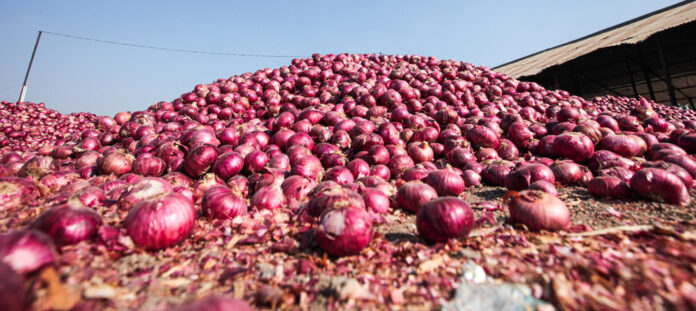Agriculture Secretary Francisco P. Tiu Laurel Jr. said smuggled onions intercepted at the Mindanao International Container Terminal in early June will be destroyed as recommended by the Bureau of Plant Industry after samples tested positive for Escherichia coli bacteria.
The Bureau of Customs, on the request of the DA-Inspectorate and Enforcement office and the BPI, intercepted a container van carrying around 25 metric tons of onions, misdeclared as processed food such as egg noodles and pizza dough. The shipment arrived on May 26 from China, with Manila-based Latinx Consumer Goods Trading listed as consignee.
“The presence of E. coli at borderline indicates possible fecal contamination, often associated with poor sanitary conditions during handling and post-harvest practices, and may pose potential health risks if not addressed,” the BPI told Secretary Tiu Laurel. “Should this be distributed to consumers, there will be a possible increased growth which may increase health risk to consumers especially when eaten raw and uncooked,” the BPI warned.
Under customs regulations, contaminated perishable goods like fresh or frozen produce must be destroyed, returned to the sender, or shipped to a third country. “Clearly, these onions aren’t fit for human consumption,” Tiu Laurel said.
Consuming E. coli–contaminated food can cause severe gastrointestinal illness—and in extreme cases, be life-threatening.
Highlighting President Ferdinand Marcos Jr.’s directive that food sold in the Philippines must be not only affordable and nutritious, but above all safe, the DA chief reiterated, “This is why we are not letting up on our anti‑smuggling campaign.”
This action follows recent inspections at the Port of Manila, where six container vans of onions and frozen fish were found misdeclared and further prompts a DA request to the BOC to withhold release of 59 container vans at Subic Bay Freeport suspected of containing smuggled agricultural products.
Through intensified inter-agency inspections and firm enforcement of the Anti-Agricultural Economic Sabotage Law, the DA aims to protect both public health and Filipino farmers—reinforcing its commitment to ensuring just, safe, and secure food supply chains.







